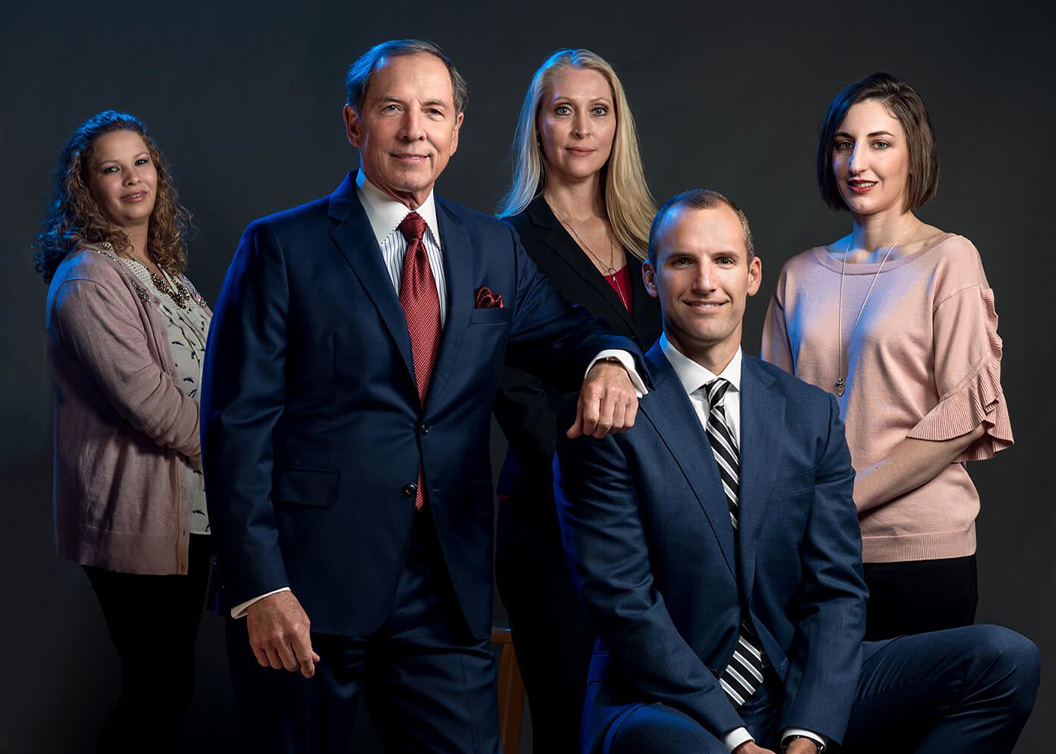
San Diego DUI Accident Lawyer
Representing Drunk Driving Accident Victims in Southern California
Despite the best efforts of law enforcement, community organizations, and the state legislature to reduce the problem, drunk driving remains one of the most significant highway risks faced by any California motorist. In fact, from 2005 thru 2011, nearly one-third of all traffic fatalities in California occurred in drunk driving accidents.
Drivers who are most likely to drive drunk are young people between the ages of 21-24, who make up a third of all drunk drivers. All told, drivers between the ages of 21 and 44 make up 88% of drunk drivers. Other drivers who are more likely to drive drunk include past offenders of impaired drivers.
If you need to know your legal options in the aftermath of an accident caused by an intoxicated driver, contact a San Diego drunk driving accident lawyer at The McClellan Law Firm at (619) 215-1488 for a free consultation.
What is Considered Drunk Driving?
In California, drunk driving, officially known as driving under the influence (DUI), is defined under California Vehicle Code Section 23152. The blood alcohol concentration (BAC) limits include:
- Adults (21 years and older): A BAC of 0.08% or higher.
- Commercial drivers: A BAC of 0.04% or higher.
- Drivers under 21 years old: A BAC of 0.01% or higher.
- Repeat offenders: For drivers who are on DUI probation, a BAC of 0.01% or higher is prohibited.
A driver can also be charged with DUI if they are under the influence of alcohol, drugs, or a combination of both, to the extent that their physical or mental abilities are impaired to the degree that they cannot drive with the caution of a sober person, using ordinary care, regardless of their BAC.
Alcohol impairs your ability to drive in the following ways:
- Slowed Reaction Time: Alcohol slows your brain's ability to process information and react to changing situations on the road. This delay can make it difficult to respond quickly to hazards or sudden changes in traffic.
- Impaired Coordination: Alcohol affects motor skills, leading to poor hand-eye coordination and reduced ability to steer, brake, or accelerate effectively.
- Decreased Concentration: Alcohol reduces your ability to focus on multiple tasks simultaneously, which is essential for safe driving. You may have trouble maintaining your lane, obeying traffic signals, or keeping track of other vehicles.
- Poor Judgment: Alcohol impairs your ability to make sound decisions. This can lead to risky behaviors such as speeding, tailgating, or not using seat belts.
- Blurred Vision: Alcohol can cause blurred or double vision, making it difficult to judge distances and see road signs or other vehicles clearly.
- Drowsiness: Alcohol can make you feel drowsy or even fall asleep at the wheel, significantly increasing the risk of accidents.
- Reduced Inhibition: Alcohol lowers inhibitions, which can lead to more aggressive driving behaviors and a higher likelihood of taking unnecessary risks.
California's implied consent law requires drivers to submit to chemical testing (breath, blood, or urine) if they are lawfully arrested for DUI. Refusal to submit to such testing can result in automatic license suspension and other penalties.
The Difference Between Civil & Criminal Courts
What is important to remember regarding your DUI case is that civil and criminal court are separate systems. If the person who caused your injury was never charged with DUI, it does not mean you do not have a case. Even if they were charged but not convicted, you have legal recourse for compensation.
According to Mothers Against Drunk Driving, fewer than 2% of drunk driving incidents result in arrest. Regardless of whether the drunk driver in your situation has been charged or convicted, you have a right to demand reparation or recovery through civil law. The law has specific protections for people in your position.
In addition, the burden of proof regarding civil law is far lower than criminal cases. This means that even if the at-fault driver in your accident was found not guilty of DUI in criminal court, you may still achieve a recovery in civil court. Criminal cases require proof “beyond a reasonable doubt,” but civil cases are judged by a standard of a “preponderance of evidence.” Essentially, if the evidence suggests DUI occurred, you may have a claim.
Dedicated Attention After a Devastating DUI Accident
Drunk driving accidents may seem straightforward, but the process of proving liability is a complex one. As laws continue to shift and change regarding drunk driving liability, the fault of a DUI collision may be shared. For example, dram shop laws cases begin to hold bars, restaurants, and other alcohol servers partially responsible for the actions of drunk patrons who leave their premises, including the damage they cause after leaving. These laws are extremely limited in California, but there may still be a few circumstances in which they may apply.
To prove negligence, plaintiffs require the following proofs:
- The defendant had a duty to the plaintiff;
- The defendant failed to perform that duty;
- The defendant’s failure caused damage to the plaintiff; and
- The plaintiff’s calculable and/or demonstrable damages.
Our goal in drunk driving accident cases is to maximize your compensation from every available source. We recognize that no amount of money will take the place of a fatally-injured family member or restore the health of a permanently disabled drunk driving victim. Our firm hopes to win compensation on your behalf so you can focus on recovering and moving forward with your life, not worry about providing for your own needs.
The Importance of Drunk Driving Enforcement
Drunk driving enforcement is one of the most important aspects of overall traffic safety.
Enforcing DUI laws is an effective way to get drunk drivers off the roads and to deter others from drinking and driving, particularly with publicized checkpoints. The publicity from these checkpoints serve to remind drivers of the consequences of drinking and driving. Drivers have a responsibility to obey traffic laws and to drive in a safe manner. If they drink while under the influence, they may face criminal charges and civil lawsuits. Checkpoints and other forms of DUI enforcement, such as increased patrols, can help to catch drivers that would have otherwise passed under the radar. These efforts can also deter people from driving drunk in the first place.
Sobriety checkpoints, also referred to as DUI checkpoints, are conducted by law enforcement in an effort to deter drunk driving. According to the California Highway Patrol (CHP) website, checkpoints are maintained:
"…to reduce the number of drunk drivers on our highways and diminish the amount of pain, suffering and death that result from drunk driving."
The NHTSA has stated sobriety checkpoints provide the most effective documented results of any enforcement strategies. These checkpoints are publicly advertised in advance and are conducted by randomly screening vehicles to discourage discrimination or racial profiling. Checkpoints should be conducted in an organized manner, with minimum detainment of stopped drivers. Upon stopping a vehicle, law enforcement may only proceed with a field sobriety or breath test if there is sufficient reason to believe the driver has been drinking.
Holding Drunk Drivers Accountable in San Diego, CA
If a drunk driver caused a car accident that left you or a loved one injured, you may be able to sue for damages. A personal injury lawsuit may enable you to pursue financial compensation for damage to your vehicle, medical expenses, lost earnings, emotional trauma and other losses or injuries you have experienced.
At The McClellan Law Firm, we believe in fighting against drunk driving. By holding drunk drivers accountable for their conduct, we help victims rebuild while increasing awareness of the dangers of drinking and driving.
Call Our Attorneys After an Accident With A Drunk Driver
Because we limit our caseload to 15 at a time, our attorneys are able to analyze the circumstances of your accident, your injuries and losses, and the prospective liability of all potential defendants in the depth and detail your case deserves. We have helped hundreds of clients recover millions of dollars for their injuries.
Our drunk driving injury attorneys have long experience with the investigation and presentation of DUI or DWI injury and wrongful death claims not only against the intoxicated driver, but also against any other party whose negligence might have contributed to the accident. Our insight may be able to serve you—call us today.
For a free consultation about your options in a drunk driving accident case, whether or not the intoxicated driver was ever charged with DUI, contact The McClellan Law Firm in San Diego.
For over 30 years, The McClellan Law Firm has been dedicated to helping clients across California secure justice and protect their futures. Founded by renowned attorney Craig R. McClellan, the firm has earned a reputation for excellence and integrity in the legal field. With decades of experience and a commitment to achieving results, we pride ourselves on providing exceptional representation and unwavering support to every client we serve.



-
 Craig McClellan is a member of the Inner Circle of Advocates, an invitation-only group of the top 100 plaintiff trial lawyers in the United States.
Craig McClellan is a member of the Inner Circle of Advocates, an invitation-only group of the top 100 plaintiff trial lawyers in the United States. -
 Craig McClellan was voted Lawyer of the Year for Product Liability Litigation by Best Lawyers for 2025.
Craig McClellan was voted Lawyer of the Year for Product Liability Litigation by Best Lawyers for 2025. -
 The firm earned a Tier 1 ranking in Personal Injury in the 2025 list of the Best Law Firms.
The firm earned a Tier 1 ranking in Personal Injury in the 2025 list of the Best Law Firms. -
 Craig McClellan earned one of the top 10 medical malpractice settlements in California, securing a $9,000,000 settlement for a client.
Craig McClellan earned one of the top 10 medical malpractice settlements in California, securing a $9,000,000 settlement for a client. -
 Craig McClellan & Conor Hulburt earned one of the top 10 premises liability settlements in California, securing a $3,175,850 settlement for a client.
Craig McClellan & Conor Hulburt earned one of the top 10 premises liability settlements in California, securing a $3,175,850 settlement for a client. -
 Craig McClellan has been selected to the list of Super Lawyers every year since 2007, and earned the most votes of ANY lawyer for 2019 in San Diego.
Craig McClellan has been selected to the list of Super Lawyers every year since 2007, and earned the most votes of ANY lawyer for 2019 in San Diego. -
 Craig McClellan was voted Lawyer of the Year for Product Liability Litigation by Best Lawyers for 2019.
Craig McClellan was voted Lawyer of the Year for Product Liability Litigation by Best Lawyers for 2019. -
 Craig McClellan is listed as one of America’s Top 100 High Stakes Litigators in Business Litigation, Personal Injury, and Product Liability.
Craig McClellan is listed as one of America’s Top 100 High Stakes Litigators in Business Litigation, Personal Injury, and Product Liability. -
 Attorney McClellan has a 10/10 “Superb” rating, the highest rating an attorney can receive from Avvo.
Attorney McClellan has a 10/10 “Superb” rating, the highest rating an attorney can receive from Avvo. -
 The firm has an A+ rating from the Better Business Bureau, the highest possible rating offered by the organization.
The firm has an A+ rating from the Better Business Bureau, the highest possible rating offered by the organization. -
 Attorney McClellan is a member of the Consumer Attorneys of San Diego, and previously served on its Board of Directors.
Attorney McClellan is a member of the Consumer Attorneys of San Diego, and previously served on its Board of Directors. -
 Attorney Craig McClellan was named as one of the “Best Attorneys” by the Los Angeles Times.
Attorney Craig McClellan was named as one of the “Best Attorneys” by the Los Angeles Times. -
 Attorney Craig McClellan was named one of the “Best Lawyers” by San Diego Metro.
Attorney Craig McClellan was named one of the “Best Lawyers” by San Diego Metro. -
 Attorney Craig McClellan was named one of the Top Lawyers in San Diego in Business Litigation by San Diego Magazine.
Attorney Craig McClellan was named one of the Top Lawyers in San Diego in Business Litigation by San Diego Magazine. -
 Craig McClellan has been named among the Lawdragon 500 Leading Plaintiff Consumer Lawyers, which honors the nation’s top advocates.
Craig McClellan has been named among the Lawdragon 500 Leading Plaintiff Consumer Lawyers, which honors the nation’s top advocates.

-
“I swear they work 24/7! And most importantly, we knew that they truly cared about us and the outcome. They fought for our family and have given us the piece of mind that our son's healthcare will always be covered.”S.P.
-
“We will NEVER forget what you did for us Craig. We are FOREVER GRATEFUL.”K.V.
-
“We wouldn’t be here, in this moment of life without the kindness and professionalism of you all and how you went to bat for us! Eternally grateful!”A.K.


.2412171328362.png)
.2411141136156.png)



.2411141143453.png)






.2411141148140.png)